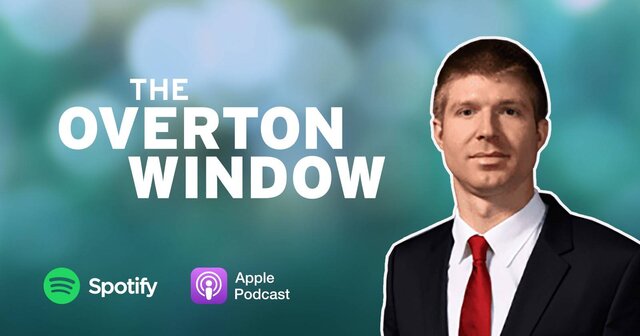
Governments at the local, state and federal levels run a vast number of anti-poverty programs, but poverty rates remain high. The two political parties rarely consider solutions that do not involve spending more public money. Our leaders would be better off eliminating barriers to work rather than fussing over finances, according to Josh Bandoch, head of policy at the Illinois Policy Institute.
Bandoch works extensively within the Illinois Policy Institute’s Center for Poverty Solutions, which researches poverty trends. Through a meticulous comparison of poverty studies, Bandoch found surprising agreement between left- and right-leaning think tanks on seven issues that could reduce the poverty rate in the United States. He discusses these findings in detail on the Overton Window podcast.
“The poverty rate in Chicago is 17.2%. For folks who were unemployed last year, it was 39.7%. For folks who worked full time, 2.3%.” Bandoch argues that work empowers people and is essential to human nature.
“We could solve poverty today only to see people fall back into poverty tomorrow because of the way the economy is evolving through technology, AI and all sorts of things.”
“The biggest one worth focusing on is occupational licensing, which is a government permission slip to make an honest living.”
“We need to reorient it from what is a mistaken focus on degrees to a focus on careers,” Bandoch says. “People who complete apprenticeships make $22,000 more per year than the average American worker.”
A benefit cliff, Bandoch explains, is an instance “when someone increases their income by a certain amount, they typically lose all the benefits, which can sometimes total up to $15,000. That provides a steep cliff and disincentive for people to work.”
Bandoch highlights Chicago Mayor Brandon Johnson’s April report, which he says, “has a lot of recommendations to at least reduce the insane amount of red tape that anybody who wants to build anything in Chicago faces.”
“We know it matters. Nationally, the poverty rate is 11.5%. Folks who follow what’s called the success sequence — finish high school, get a full-time job, get married, then have kids — have a poverty rate of about 2%.”
In the second segment of the conversation, Bandoch explains how to communicate these policy ideas to appeal to individuals of every political ideology.
“How we talk about these things is really important. We could agree on something and alienate somebody who doesn’t agree with us if we don’t talk about it in a way that’s effective,” Bandoch says.
“I believe that markets are the best way to empower people, but I need to frame that in a way that resonates with people on the left as well. You have to talk to their moral language, and then you have to engage them in conversation and also let them know that you’re not this crazy seven-headed beast.”
Learn more about how Josh Bandoch persuades and pursues resolutions to poverty by listening to this conversation on the Overton Window podcast.
Permission to reprint this blog post in whole or in part is hereby granted, provided that the author (or authors) and the Mackinac Center for Public Policy are properly cited.
Get insightful commentary and the most reliable research on Michigan issues sent straight to your inbox.

The Mackinac Center for Public Policy is a nonprofit research and educational institute that advances the principles of free markets and limited government. Through our research and education programs, we challenge government overreach and advocate for a free-market approach to public policy that frees people to realize their potential and dreams.
Please consider contributing to our work to advance a freer and more prosperous state.

Donate | About | Blog | Pressroom | Publications | Careers | Site Map | Email Signup | Contact